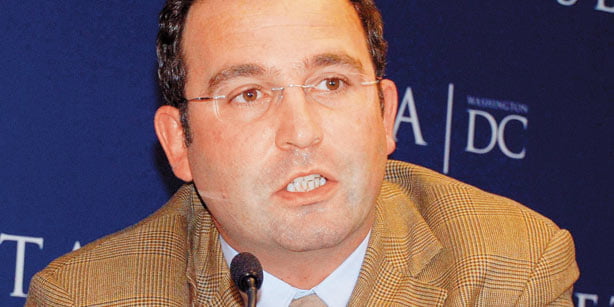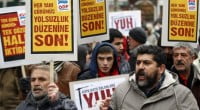Who benefits the most from the AKP-Gülen movement rift?

Date posted: November 10, 2014
Over the last 12 years, the Justice and Development Party’s (AKP) chief accomplishment has been to establish the supremacy of Turkey’s elected leaders over the military. The Turkish military had ousted four governments since 1960.
Today Turkish democracy no longer operates at gunpoint. Yet, an unexpected byproduct of the current rift between the AKP and the Gülen movement involves the potential return of the military tutelage system since embattled President Recep Tayyip Erdoğan now seems increasingly willing to forge an unholy alliance with the Turkish army on issues ranging from the Kurdish question to the need to eradicate Gülenists. The AKP’s opportunism in courting the military came shortly after the corruption probe when one of Erdoğan’s top advisors suggested that the military was framed by the same Gülenist prosecutors who launched the corruption investigation against the government. This statement put into question the whole legitimacy of the judiciary files against officers charged with coup-plotting. Not surprisingly, almost all the officers implicated in trials have been released.
It is only a matter of logic. The institution that suffered the most from the AKP-Gülen alliance will also be the one that will benefit the most from the rupture in the Islamic camp. A bit of history may help us understand why this is the case. Until recently the AKP and the Gülen movement shared a common enemy. The raison d’être of the alliance was the need for both groups to protect themselves against the staunchly secularist military which considered both groups as existential threats to Kemalism. It was eventually the ultra-secularist drive of the military in the 1990s that led to a marriage of convenience between the Gülenists and the AKP which replaced the Welfare Party (RP) in 2001. In the eyes of the Turkish military, the Gülen movement was an even more daunting challenge than the AKP. After all, the phenomenon of political Islam was identifiable in political parties like the RP or the AKP. The Gülenists, on the other hand, represented a much different kind of threat because of their long-term social, cultural and educational strategy. Theirs was a generational project. The Gülenists claimed to be above politics and apolitical. Yet the graduates of Gülen-affiliated schools often entered public service in key government institutions. In the eyes of the army, this amounted to a secret agenda of political infiltration and represented an existential threat for the Kemalist/secular foundations of the republic.
The tension between the military and the Islamic camp culminated with the e-coup in 2007. Shortly after winning the 2007 elections in a landslide, the AKP launched a counter-offensive in order to put an end to the role and power of the military over elected politicians. The scope of Gülenist prosecutors became clear during the Ergenekon investigation. This situation radically changed the image of a social and religious movement that tried hard to stay above politics. The investigation targeted a network composed of active duty and retired military personnel, ultra-nationalist extremists, political activists and organized crime figures — a conglomeration often referred to as the “deep state” — all united by the desire to bring an end to the rule of the AKP and its ally, Fetullah Gülen.
Until recently it was safe to assume that the net effect of the Ergenekon investigation was the total emasculation of the Turkish military. Yet, the dynamics of Turkish politics are notoriously fickle and there are already clear signs that the military is reasserting itself. To be sure, another military intervention seems farfetched. Yet, it is no longer possible to rule out a scenario where generals could once again act as the self-declared guardians of the system. They would probably do so not only by exploiting the division within the Islamic camp but also by raising their voice on issues related to the Kurdish question in domestic and foreign policy.
Source: Today's Zaman , November 09, 2014
Tags: Defamation of Hizmet | Hizmet and politics | Turkey |
























